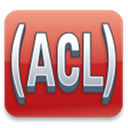Unveiling the Best Steel Bank Common Lisp Alternatives
Steel Bank Common Lisp (SBCL) is renowned as a high-performance Common Lisp compiler, offering an interactive environment with powerful features like a debugger, profiler, and code coverage tools. While SBCL is an excellent choice for many, developers often seek alternatives for various reasons, including specific platform needs, licensing preferences, or unique feature requirements. This article explores the top alternatives to Steel Bank Common Lisp, helping you find the perfect fit for your next project.
Top Steel Bank Common Lisp Alternatives
Whether you're looking for different platform support, specific language features, or simply want to explore other robust Common Lisp implementations, these alternatives offer compelling options.

Hy
Hy is a fascinating Steel Bank Common Lisp alternative that stands out as a Lisp dialect embedded within Python. This unique integration means Hy code compiles into Python's Abstract Syntax Tree, granting you full access to Python's extensive ecosystem. It's a free and open-source solution available across Mac, Windows, and Linux, boasting features like an interpreter, object-oriented programming, and robust scripting capabilities, making it ideal for those who appreciate the flexibility of both Lisp and Python.

AUMS
AUMS serves as a free personal alternative to Steel Bank Common Lisp, primarily available on Windows. Its strengths lie in being console-based and offering powerful macro capabilities, making it a suitable choice for users who prefer a command-line interface and need extensive macro support for their Lisp development.

CLISP
CLISP is a highly portable ANSI Common Lisp implementation and development environment, making it a strong Steel Bank Common Lisp alternative. It's free and open-source, with support for Mac, Windows, and Linux. CLISP includes an interpreter, compiler, debugger, CLOS, MOP, FFI, Unicode support, and sockets, making it a comprehensive solution with an integrated development environment and the ability to work with multiple languages.

CMU Common Lisp
CMU Common Lisp (CMUCL) is a free, high-performance Steel Bank Common Lisp alternative that runs on most major Unix platforms, including Mac and Linux. It largely conforms to the ANSI Common Lisp standard, providing a robust and performant environment for Lisp development. As an open-source option, it appeals to those seeking a well-established and community-supported implementation.

Clozure Common Lisp
Clozure Common Lisp (CCL) is a long-standing free and open-source Steel Bank Common Lisp alternative with a reputation for fast compilation. It supports a wide range of platforms including Mac, Windows, Linux, and BSD, making it highly versatile. Its focus on performance makes it an attractive choice for projects where compilation speed is critical.

Allegro CL
Allegro CL is a powerful dynamic object-oriented development system that offers a free personal edition, making it a compelling Steel Bank Common Lisp alternative for individuals. It's available on Mac, Windows, Linux, and BSD and is particularly well-suited for enterprise-wide, complex application development. While the full version is commercial, the free personal edition allows users to explore its extensive capabilities.

GNU Common Lisp
GNU Common Lisp (GCL) is the official Common Lisp for the GNU project, providing a robust Steel Bank Common Lisp alternative. It's free and open-source, supporting Windows, Linux, and BSD. GCL leverages the system's C compiler to produce native object code, ensuring good performance for compiled applications, making it a solid choice for those deeply integrated into the GNU ecosystem.

LispWorks
LispWorks is a commercial implementation and IDE for the Common Lisp programming language, with a free Personal Edition available, positioning it as a strong Steel Bank Common Lisp alternative for personal and educational use. It's supported on Mac, Windows, Linux, and BSD. Its integrated development environment (IDE) is a significant feature, offering a comprehensive and user-friendly experience for Lisp development.
Choosing the right Common Lisp implementation depends heavily on your specific project requirements, platform preferences, and development style. We encourage you to explore these Steel Bank Common Lisp alternatives and experiment to find the one that best empowers your coding journey.